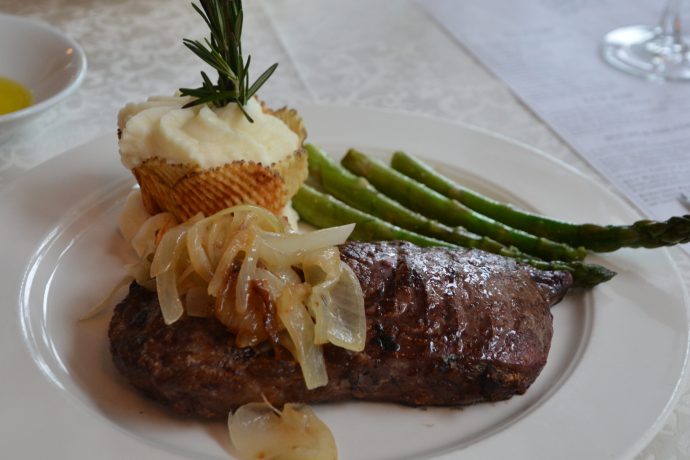(photo with caption “There is a secret method to eating slowly and with savor.”
The modern age is best characterized by the word speed. We jump in our cars and rush from home to work and from work to home. In fact, life has become so fast that we barely have time to taste our food. Henry Adams was the first to describe how technology has sped up human existence to the point of breathlessness. He wrote his classic essay “A Law of Acceleration” way back in 1904 and it’s been getting worse ever since.
The advent of the computer led to the electronic revolution and by the 1980s the post-modern theorist Jean Baudrillard accurately pronounced that things have come at us so fast and so perfectly that modern discourse died along with history itself. He was right about all of this.
The world is now a speeding comet giving us lives that are hyped up, frenzied and overloaded with no time to stop, think or listen. And all this speed has consequences, one of which is that people spend their ever-shrinking down time by sitting in front of the television wolfing down food without a moment to stop and enjoy what we are eating.
This combination of inactivity and eating too quickly has led to an obesity epidemic in America and the emergence of the specialty of bariatric surgery.
I am assigned the task of evaluating many patients during the preoperative phase of this surgery to rule out any serious mental illness and last night I was invited to give a talk to some of the post-operative patients as part of an after-care group run by a physicians assistant.
An interesting question came up during my talk when the subject turned to relearning how to eat as a part of the post-operative process. The dietician in the group recommended that patients pause two minutes between bites and to use a timer to do so. I was asked how to reframe the eating experience given this drastic change in eating styles. I really did not know what to say, but one of the participants provided a truly brilliant answer to this.
He talked about how he has learned to savor each bite and that food can be experienced as a soothing moment. In addition, he said that as one waits for the next bite one can anticipate it with glee. This reminded me of the French attitude towards sex, which is that the anticipation of the act of sex is essentially where all the pleasure resides.
This brief conversation is exactly what cognitive reframing is all about. One needs to come up with true wisdom which can convert a frustrating situation into an edifying experience. I recalled when I was in graduate school and gave up cigarettes. I reinterpreted the agitation and withdrawal I felt as being more “clear-headed and energized,” which helped me to write my dissertation.
When the patient in the after group described eating as a “soothing experience,” of course he was correct. Christopher Bollas, one of the world’s pre-eminent psychoanalysts describes this as the transformational object. He suggests that adults seek out these transformational moments in order to relive the infancy experience when the mother would take care of their hunger, wetness or distress by feeding, drying etc.
And all this takes us back to food and how to eat more slowly and with relish and pleasure. To reframe the affair one needs to say “I am enjoying this food” as you chew and swallow. And with timer in place and as you wait, you might also reframe the wait as anticipation rather than frustration. And if you’re really smart, you might want to find the old Carly Simon tune “Anticipation,” which goes like this,
“Anticipation, Anticipation,
It’s keepin’ me waitin’
So I’ll try to see into your eyes,
And stay right here for these are the good old days
These are the good old days.”
It is not easy to find the stop button in the moment or to pause, especially in the postmodern world of speed and the great rush to find happiness somewhere in the untouchable future. But this is a good habit to try to establish.
You can start with by slowing down your eating habits and making an effort to enjoy each bite you take. And if that works, you can try to generalize that habit to every other moment in your life, which is what monks and poets and mystics engage in as a way of life. And if you doubt that, just read Henry David Thoreau’s “Walden,” which was his famous answer all those folks who lead lives of quiet desperation.

